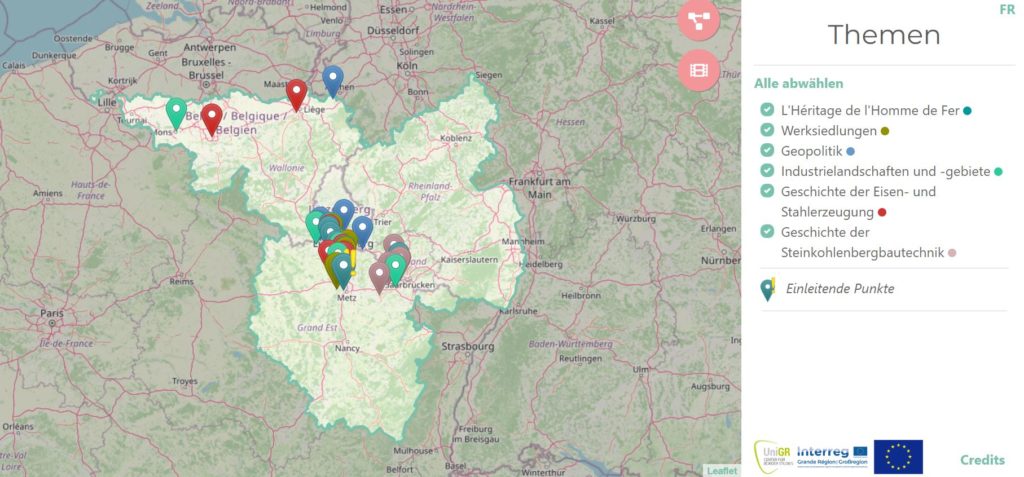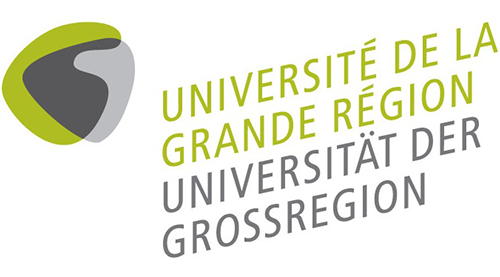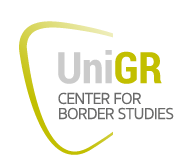Teaching
Study at various university locations in different countries requires a high level of mobility as well as linguistic and intercultural skills. Online-based scenarios can help to facilitate cross-border studying. Different blended learning arrangements with this goal will be implemented, with the Masters in Border Studies being an example. In addition, digital teaching materials will be developed and integrated in the teaching program. Massive Open Online Courses (MOOCs) will also be created, which ensure increased visibility of the cross-border range of courses as well as attracting students from outside the Greater Region.
Diagnosing Territories beyond the Borders
Support for Lecturers and Students
All participating universities ensure end-to-end didactic and technical support for lecturers and students using the tools available in the online learning environment throughout the duration of the project (2018-2020). This includes managing the MOOCs and providing tutorials for the Learning Management System.

Borderland Stories Project with Ukrainian and Saarland Students
Borderland Stories
More than 30 students from the Greater Region and Ukraine are working together on multimedia projects about border stories in and around Europe. The intercultural exchange and cooperation with Ukrainian filmmakers is supported by a broad-based team with a wide range of expertise in cultural studies, linguistics, media studies and border studies.

UniGR-CBS members win the Saarland State Award for University Teaching 2022
On Wednesday, March 22, 2023, the project “Borderland Stories,” which was launched in 2021, was awarded with the Saarland State Prize for University Teaching 2022. “The goal was to bring students from the Greater Region together with students from Ukraine and have them engage in a dialogue about life in their respective borderlands.” said UniGR-CBS member Astrid M. Fellner.

Master in Border Studies
How to study in three Countries and four Universities?
The study program is designed for students with different disciplinary backgrounds who wish to develop the necessary skills and competencies to work in intercultural and cross-border settings.
More Insights from the Student Perspective
The Master in Border Studies provides students with the major concepts and analytical tools to understand the social, cultural, political and economic challenges of border regions and cross-border cooperations. Students gain theoretical knowledge of border problems, border cultures, border literatures and constructions of “otherness”.
First graduates of the trinational UniGR Master
Two years of intensive and sometimes strenuous study in three countries and at four universities (Metz, Luxembourg, Saarbrücken and Kaiserslautern) lie behind them – two years which have proved rewarding in many respects. With their studies, the students did not only obtain a trinational degree, but also the best conditions for employment in organisations and companies working across borders.
What’s next?
Students acquire the necessary skills to play a crucial part in the growing number of discussions on national and European identities, worldwide mobilities, migration, cultural diversity, citizenship and cross-border cooperation – especially in the Greater Region.
Study Day
Riverine Borders
Waterways are essential components of the living and non-living world. They shape landscapes and serve as demarcation lines – as “natural borders” – between states in many parts of the world. The accompanying program to Zoe Leonard’s exhibition “Al río / To the River” (02/02-06/06/2022) organised by UniGR-CBS’s partners focused on the materiality of these river borders both from a territorial, geographical, and political point of view, and also from a metaphorical perspective.


